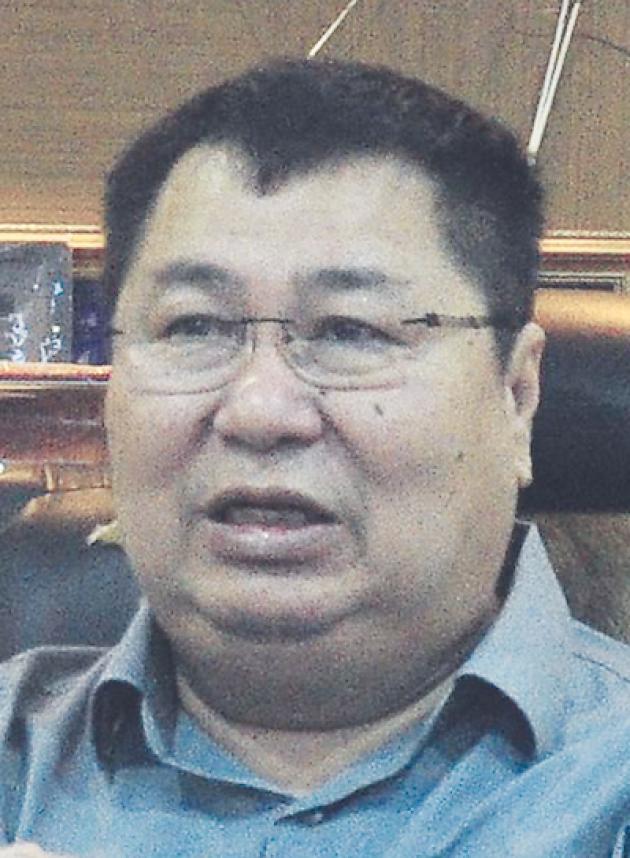Efficient system key to rise of Myanmar in era of openness

Thai know-how much needed as reform takes hold
In the conclusion of a two-part series, Nation Group’s Onravee Tangmeesang seeks Myanmar tycoon Dr Khin Shwe’s opinions about this transitional period in his country as foreign investors sweep in to look for opportunities and the market gears up for competition in the foreseeable future.
With Myanmar opening up, foreign investors are looking to invest in the country. Do you think this will bring opportunities or challenges for local business leaders?
There are many good opportunities in Myanmar because we still need technology. For instance, Thailand is ahead of Myanmar in the business sector and we need to learn a lot from them.
We will be using the resources we have to get technology from overseas. So we will be working with foreign investors. This is what we need. As a businessman, I welcome investments from foreigners, of course.
To push the country forward, which sector needs to be developed first?
Shortages like power, hotel services, roads and office buildings as well as basic infrastructures are issues that need to be tackled right away. These are priorities that have to be fixed first. Also, the country’s agriculture sector is a top priority. We have acres and acres of land, but we do not know how to grow crops and plants systematically. Myanmar was the No 1 rice exporter years ago, but now Thailand has taken that spot. The quality of rice here is very good. So we have to reform everything, including rice cultivation.
How does the country plan to meet the rising demand for office space, hotels and residential or industrial property?
There is a shortage of hotels in Yangon as of now, but there’s plenty of space and buildings to establish hotels, as the government has moved its offices to Nay Pyi Taw.
These spaces have been opened for tender, and a Vietnamese firm has moved in to build hotels and housing at the old headquarters of the Industry Ministry.
The premium fees would be inexpensive if standardised as per the international rate. Foreign investors just need to come in.
You are a chairman of the Myanmar-Thai Friendship Association. How can Thailand help Myanmar develop?
There are many business options for the two countries. We could boost the production of agricultural goods by using Thai production methods. Myanmar has two big neighbours – China and India – where our products could be exported. Myanmar is now on the road of reform, and Western countries like the United States have lifted their economic sanctions, giving us many options to work together.
I would like to invite Thais to come and invest in Myanmar, especially in the Dawei deep-sea [port] project. We should build roads linking Thailand to Dawei, and have access to the sea. I fully support this project.
Myanmar and Thailand could also tap natural resources from the Tanintayi Division for mutual benefit and we could also develop it into a tourist destination. If we can develop this region, our migrant workers will return to Myanmar, thus easing the burden on Thailand. I have heard that there are 3 million Myanmar migrants working in Thailand. Now, the area in Kayin should be stabilised as the government has successfully made a peace agreement with the ethnic armed groups.
Tourism is now booming and the price of hotel rooms has been skyrocketing lately. As chairman of the Myanmar Tourism board, how do you suggest this problem should be solved?
The government is issuing visas on arrival as well as online. Two years ago, Myanmar had about 300,000 tourists and last year the number doubled. Next year we expect up to a million tourists. If the number of tourists increases right away, we will not have enough facilities for them, but we are moving progressively. Getting a visa will become very easy, especially for people from Asean countries. For instance, Thailand and Myanmar are sister countries, so there could be one visa for both of them.
How do you see Myanmar in the future?
I think there will be [very] much development and a huge boom. It should boom, of course, but due to the lack of a system, the country is not where it should be.
But we are open now and the sanctions have been lifted. The country will rise with speed, I believe.
What are your suggestions for the government to maintain this positive outlook and for foreign investors who would like to do business in Myanmar?
The country has suffered for many years and the per capita income is very low. The people do not have “spending power”, with up to 27 per cent of the population impoverished. Of course, no one wants to take a U-turn, we are moving forward.
The situation at this time is good. The government itself is going forward. They are working on reducing poverty and providing job opportunities. So the government is welcoming foreign investors and offering them new opportunities. I am sure the country will develop, as we are not going to turn back to the past. I’m sure no more private properties will be nationalised. In 1962, Myanmar was the top country in Asia, but it sank after nationalisation.
I hope within 10 years, the country will rise to the top again.
RELATED





